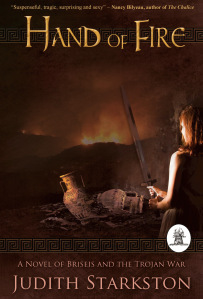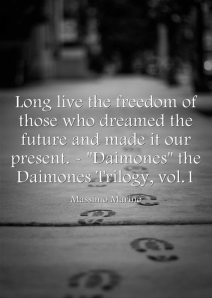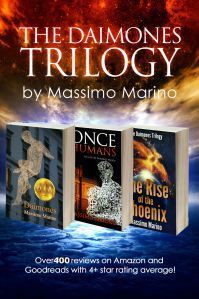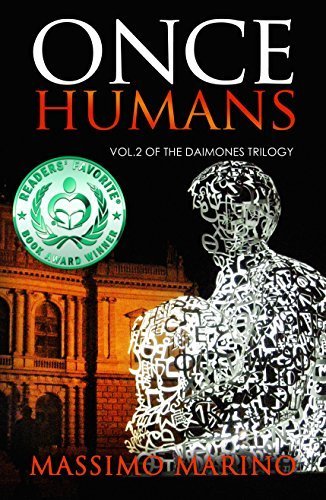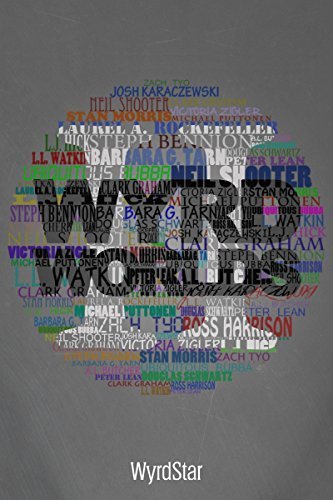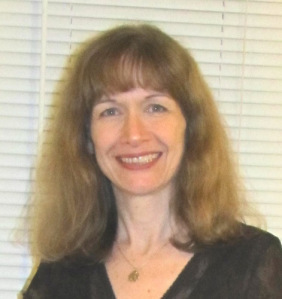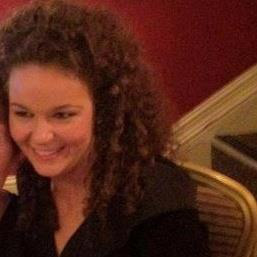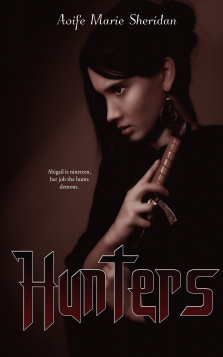A.L. Butcher's Blog, page 183
October 27, 2014
Character Interview Thirty Two – Briseis – Hand of Fire Blog Tour – Historical Fiction
As some of you know I am quite a fan of history, especially ancient history so I was delighted when author Judith Starkson got in touch asking me to participate in the blog tour for Hand of Fire. The Iliad is the epic tale of the Trojan War, told by Homer in true heroic fashion, but what of the women involved, Hand of Fire is the tale of one of the brave ladies who found themselves embroiled in one of the most epic battles in history.
Summary:
In the Iliad, Homer gives only a few lines to Briseis, the captive woman Achilles and Agamemnon fought over. Hand of Fire brings Briseis to life. As healing priestess and strong-willed princess, guarding her city, an ally of Troy, from the Greeks, she draws strength from visions of a handsome warrior god she believes protects her. But when he appears, she realizes her tragic mistake. Achilles, the mighty, half-immortal Greek, destroys her city and kills her brothers. Briseis, fueled by unspeakable grief, raises a sword against the invincible warrior. With this act, she ignites a passion that seals his fate and changes her destiny.
Only recently has modern archaeology revealed the Trojan realm with compelling detail through vast cuneiform libraries and complex sites. Unlike previous novels set in this iconic war, Starkston has accurately captured the rich milieu of this Bronze Age world, in a lively and fast-paced tale that combines myth and history to give the long-silent Briseis a powerful voice.
Welcome and tell us about yourself.
Name (s): Briseis
Age:15 when you first meet me in my story
Please tell us a little about yourself. I’m the woman in the stories about the Trojan War who caused the bitter conflict between Achilles and Agamemnon. It wasn’t my fault, mind you. Agamemnon is a pig. Achilles is too stubborn to compromise, much as I love him anyway. I wasn’t even there when they blew up. Most people think I don’t have much to say because the most famous chronicler of the Trojan War, Homer, let me speak up once in his poem that’s 24 books long—once! Well, I’ve found a much better place to tell my side of the story—Hand of Fire. And I like this blog.
Before Achilles plundered my city and changed my destiny and his, I followed my mother as my city’s healing priestess. I was betrothed to the king’s son, so I was also going to be the queen someday. I had to protect my people from the gods’ wrath and, frankly, from my princely husband’s rash decisions. Then Achilles arrived, sword in hand. The gods sent me a big surprise that I can’t tell you about or it would spoil my story—let’s just say the gods like tricking mortals.
Describe your appearance in 10 words or less. A tall, gray-eyed redhead. Homer says I look “like Aphrodite.”
Would you kill for those you love? I was trained to heal illnesses and keep my people safe. To kill goes against everything I was raised to be, but there’s something deep in me I discovered that’s stronger than all of that. What does it take to bring that kind of dark strength out into the open and turn a healer’s hand to violence? I’ll let you read my story and find out—it’s all there in Hand of Fire.
Would you die for those you love? Many days, when I’d lost so many, I wished I had died, but I’ve realized that no matter how bad things get there’s a way to find joy in life. You can’t let death and sorrow dominate. Achilles once said to me, “simple joys bring healing if you let them.” Ironic he understood that then and I didn’t. He lost that wisdom later. It broke my heart, but I still believe he was right the first time.
What would you say are your strengths and weaknesses? My father always said I was headstrong. He’s right and I think that’s been both a strength and a weakness for me. I cause trouble when I speak up without thinking things through when I really care about something. My husband did not take kindly to that—I have the scars to show that.
Another aspect that I’m not sure whether it’s a strength or a weakness is that I have visions the gods send me, or I think that’s where they come from. I was only ever able to tell one person about them—some of them are so…, well, intimate and passionate—I couldn’t get the words out to anyone else. I thought they were a gift and source of strength, but now I don’t know. See what you think. My mother trusted the gods completely. I know I should, but it’s complicated, now more than ever.
Do you have a family? Tell us about them. My mother and father and three brothers meant everything to me. Growing up with their love gave me strength—I understood that later. Not everyone has that well to draw from. Even when you lose someone you love so much, the strength they built into you stays. That’s one of the most important things I learned about myself. But “family” can be more than your parents and siblings—that’s a gift I found also. Given all the violence and destruction I had to live through, isn’t that amazing?
Tell Us About Your World
I lived in Lyrnessos, a town allied to Troy but on the far side of Mount Ida. When I was about 15 the Greeks sailed across the Aegean and attacked Troy. That changed everything in my life. We in Lyrnessos did what we could to help Troy drive away the Greeks, but I live in an age of half immortal heroes when a goddess can rise out of the sea to comfort her son and bring him golden armour the likes none of us had ever seen. When you have the gods against you, what chance do you have? I still miss the nights around the big circular hearth in my father’s great hall, the geometric frescoes dancing on the walls in the firelight as if alive. We’d listen to the itinerant bards sing stories of warriors and gods, never realizing those far away legends would come crashing into our peaceful world.
Does your world have religion or other spiritual beliefs? If so do you follow one of them? Please describe (briefly) how this affects your behaviour. I’m a priestess of Kamrusepa, the goddess of the Trojans and Hittites who protects the fertility of the crops, herds and women. She is the protective goddess of my city Lyrnessos. If I anger her, she will doom us all. I wish I were as certain of Kamrusepa’s love as my mother was. But I bathe the goddess and offer her sacrifices. I sing her sacred tales and beckon her with my words to keep us safe. But goddesses cannot change the fate of mortals, I’m told, even when they wish to.
Does your world have magic? If so how is it viewed in your world? You’d call it magic, so I’m told. To me, I can send away illness by saying the powerful words and transferring the sickness from the patient onto some wool threads. Then I tie the threads to a mouse and send it away so the mouse can carry off the illness. I can also bring the handsome protective god Telipinu back to my people by singing his story—I know this because he appeared to me and, well, what he did with me let me know the fertility of my people was assured. That was back then, though. Now, I’m still wondering what those visions meant.
What form of politics is dominant in your world? (Democracy, Theocracy, Meritocracy, Monarchy, Kakistocracy etc.) My world is ruled by monarchy, but there are a lot of kings. My town of Lyrnessos was ruled by my father-in-law. He consulted his council and things were fine until he passed the rule over to his son. He may have been a good king but he hadn’t been a good father. The Greeks have many kings and they are constantly squabbling. Agamemnon has the most financial power—he’s a greedy pig—but he hates that Achilles, the King of the Myrmidons, is far more powerful than he is on the battlefield. Agamemnon couldn’t resist sending Achilles out to pillage towns and islands near Troy to pile up wealth for himself, but it infuriated Achilles to do this dirty work for a king he hated. When they fought about me, it had little enough to do with me—except that Achilles loved and needed me so that when Agamemnon took me away, that was the end. Achilles’ rage burned everything it touched but he was paralyzed by his fury. It became a kind of weakness. Odd, that I, as a woman, turned out to be the strong one. Certainly I proved to Agamemnon that I could terrify him.
Does your world have any supernatural/mystical beings? Please tell us about some. My world is full of supernatural beings. I wish they’d leave me alone. Every time a god or goddess interferes it never comes out well. Immortal knowledge is poison to mankind—that’s what I’ve come to believe, but I’d be in trouble if the priests and priestesses heard me say that. But when Achilles held me in his arms and I felt both the mortal and immortal parts of his being, that was different.
Author notes:
Book(s) in which this character appears plus links
Hand of Fire
Amazon Link http://amzn.to/1yq8CUf
Barnes and Noble Link http://bit.ly/1v0vuWF
Powell’s Link http://bit.ly/1xi7nVM
Author name Judith Starkston
Website/Blog/Author pages etc.
Website: http://www.judithstarkston.com/
Goodreads Author page: https://www.goodreads.com/author/show/6473981.Judith_Starkston
Amazon Author page: http://amzn.to/1wLJymd


October 24, 2014
Darker Places – Horror and Dark Fantasy Anthology – Author Interview Dani J Caile
Today I welcome one of my fellow authors involved with the Indie Collaboration Halloween anthology – Darker Places.
Name: Dani J Caile
Please tell us about your work with the Indie Collaboration. I became a member of the Indie Collaboration some time ago, but it kind of passed me by. I wanted to write stories for these anthologies but I was so busy elsewhere that it never seemed to happen. Until now. I caught a Facebook post by Donny and I thought instantly that “Hey, it’s time to tell that story.” I will surely be more involved as the months go on. The IC can only be a good thing for all of us, including writers and readers.
Where did the idea for these stories come from? This is the first one I’ve written for the IC and as with all my stories, it came from my experience. Without some reality, a story isn’t real. Everything I write, from novels all the way down to a zhong, has a reality. This particular story in Darker Places is very close to the truth.
Do you have short stories in other anthologies? Only outside IC at the moment but I hope to be in more. There’s a Steampunk anthology “Circuits & Steam” by Three Fates Press which sells well at US fairs and conferences but has yet to be set up on Amazon, and 2 future anthologies with the same publisher to come, one anthology about strange passengers on a desert bus and another in honour of 50s/60s horror movies.
I’m also a longtime member of the Iron Writer Challenge (www.theironwriter.com), a Flash fiction writing ‘competition’ which is excellent for tuning your writing skills. I have stories in their first anthology, “Ironology”, the first year of Iron Writer Winners. That will come out in a few weeks, hopefully, and almost 10% of the book are my stories. I also write up everything and anything in the Iron Writer, both the weekly challenges and any other extras and have created 3 six-month anthologies so far on Smashwords for free, ‘Dani’s Shorts3′ being the latest.
Please tell us about your other works. I’m waiting for some cover art for my latest novel, “How to build a castle in 7 easy steps”, also from Three Fates Press, though they say 2015 is the foreseeable release date. I do, however, have a self-published back catalogue which is on Amazon. There are almost 1000 copies of “Manna-X” out there…somewhere…
Sort these into order of importance: Great characters; great world-building; solid plot; technically perfect. Can you explain why you chose this order? (Yes I know they all are important…)
Solid plot – you need a framework to hang your ideas.
Great characters – these speak to your reader, communicate what you want to say.
Great world-building – your characters and plot need a believeable place to live.
Technically perfect – when everything else is done, get it right.
What three pieces of advice would you give to new writers?
1. Write what you want to write. If you’re writing to a set genre/agenda given to you, try and keep it ‘you’. No one wants yet another clone.
2. Improve. Never sit there and think you can write. Write better.
3. Have fun. Make friends, make contacts, have a laugh, but above all, write.
Most authors like to read, what have you recently finished reading? Did you enjoy it? I’m an ex-pat in Hungary and I’m a little out of the mainstream. I read “God is not Great” by Christopher Hitchens the other week and I’ll be reading it again and again for the rest of my life. It’s such a good book. I also read a few ebooks from some Indie authors I know and I’m reading Laurie Lee’s “As I walked out one Midsummer Morning” at the moment. I’m a sucker for a smooth classic. Enjoying every page.
What are your opinions about authors commenting on reviews? How important are reviews, in your opinion? Reviews are bread and butter to an author, especially an Indie author. Without them, there’s no opinion as to the quality of your work. Some have to be taken with a pinch of salt, those written by friends and good-wishers, and that’s why I always read the bad reviews. Among those you’ll find the truth.
Do you think Indie authors get a bad press? Why do you think this might be?I’ve been reading ebooks from Indie authors since 2011, I’m probably getting close to 500 or so now. Unfortunately, with most of them I didn’t even reach the second chapter, I couldn’t. The quality was atrocious. Once in a while I’ll find an Indie author who can write and sometimes I come across one who can also write something ‘different’. My readers say I’m in that last group, but those who aren’t in either of those two I’ve just mentioned destroy the image of the Indie market and bring down any chance a quality Indie author has of breaking into the limelight. Usually they’re the ones with the loudest voices, too.
Who are your influences? Too many to name. Readers say I’m a cross between Terry Pratchett and Douglas Adams, which can’t be a bad thing, though I have a more classic background, for example I love Aldous Huxley’s work. Hemingway is also a hero of mine, as is Shakespeare, Donne, Beckett, Chekhov, Milligan…the list is endless, as I said. I am influenced by everything I sense and experience.
What can we expect from you in the near future? Well, “How to build a castle in 7 easy steps” is coming soon, that’s going to be big. I’m also keeping up with the Iron Writer Challenge, perhaps even get to the Annual Final again this year, and I hope to write some stories for other IC anthologies. The thing for a writer is to write, but your stuff needs to get out there and be read…thanks for the interview!
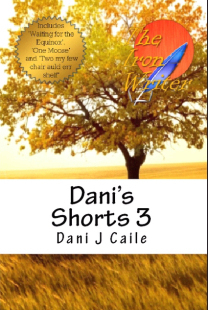
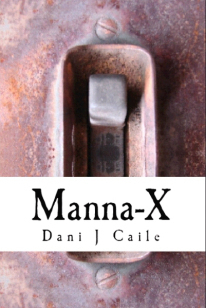
Book links, website/blog and author links:
Blog: http://danijcaile.blogspot.hu/
Twitter: https://twitter.com/jedlica
Facebook: https://www.facebook.com/DaniJCaile
Amazon: http://www.amazon.com/Dani-J-Caile/e/B00CDX0HSM
Smashwords (free books): https://www.smashwords.com/books/byseries/2766
Other posts about the Indie Collaboration:
http://libraryoferana.wordpress.com/2014/06/16/indie-collaborations-presents-summer-shorts/
http://libraryoferana.wordpress.com/2014/06/16/indie-collaborations-presents-summer-shorts/
http://libraryoferana.wordpress.com/2013/10/29/indie-collaboration-presents
http://libraryoferana.wordpress.com/2013/11/01/indie-collaboration-author-interview-3-chris-raven/


October 22, 2014
Author Interview Sixty-Nine Massimo Marino – Sci-fi
Welcome to Massimo Marino
Please tell us a little about yourself.
I’m Italian, and because even in Italy that means everything and nothing at all, I should say, I am Sicilian. I was born in Palermo, and as it happened with countless Sicilians, I left it, back in 1986. I lived more years abroad than in my home country, and I have changed in many and different ways than my old friends there. It is always a pleasure to go back, but it is now 6 long years since my last visit. Saudade? Maybe, a little.
I lived in Switzerland, France, and the United States. I am a scientist as a background, and have spent over 17 years in fundamental research. Most of my writing are then academic stuff, and I always wonder at how much Google is able to find about everyone. I am sure one has to Google oneself so not to forget too much about oneself… I use Google a lot to do research for my books.
Please tell us a little about your writing – for example genre, title, etc.
I’m writing a visionary, speculative sci-fi trilogy, “The Daimones Trilogy”. The first volume, “Daimones” is available both as paperback and ebook. The second volume, “Once Humans”, is in the last editing phases and should be hit the virtual and real shelves in a few weeks.
Daimones is part true life experience and uses real facts with an added “what if” to provide an explanation to current and past events. It developed into a post-apocalyptic novel with an ongoing mystery and suspense till the end, where all “dots connect”, especially with Dan’s past—the main character—and which leaves the reader, as one reviewer put it, “with lots to ponder”. It spurred by finding on the net an amazingly long series of inexplicable death of animals, where nothing can be pointed at as cause for the events and still most of those events share common aspects. Intriguing…what if…
Where can readers find your book?
Almost everywhere because of the extended distribution of Smashwords from their Premium Catalogue. So Amazon, Kobo, B&N, Foyles, Smashwords, and many many others.
Direct links for Amazon and Smashwords are:
http://www.amazon.com/-/e/B008O53L5O
https://www.smashwords.com/profile/view/MassimoM
How long have you been writing and what, if anything, made you choose the genre in which you write?
I wrote for many years, though it was academic stuff. Since my teen years I have written novelettes and short stories that ended up in a drawer every time and then lost and destroyed. It was a solo pleaure, very few have ever read those. Then, an unexpected turn in my life made for me to join a beta-reader community and the feedback has been phenomenal.
Sci-fi was a big hit at home when I was a kid. Had both father and older brother deep into that genre. I couldn’t avoid it.
Who or what are your inspirations/influences?
I grew up reading sci-fi, all the big names, from Isaac Asimov to Ray Bradbury, Ursula Le Guin, Frank Herbert, Larry Niven, Robert Heinlein, to name just a few and then other genres too, Tolkien, Stephen King, Tom Clancy and others. Italian authors, too, like Svevo, Calvino, Sciascia, and also Greek mythology authors, the ones I used to hate at school and that are instead fantastic writers and authors. We live with myths daily, even if we do not realize it.
Can you name a positive experience from your writing and a negative one? It is the same experience for both; sometimes you cannot control what your characters do and say. I followed lessons on creative writing from Brandon Sanderson at BYU online, and in one of those he described the two extremes of writing styles. One goes through pre-organizing everything, the entire plot, from the beginning to the end, the various conflicts, each chapter, everything. And then fills up the gaps, more and more till the manuscript is “completed”. At the opposite sit those writer called “gardeners”. These ones plant the seed of the story, and then the story grows, evolves, take unexpected turns, with the writer sometimes unable to tell how it will end, or what will happen if certain events were to occur.
I found myself more into this last tail of the “writers distribution curve”. I’ve watched Daimones in my mind, heard characters discussing, and reacting to what happened to them as in a movie. Sometimes I was unable to write as fast as the images flow I witnessed and I had to ask them to rewind and let me watch again.
The story and the characters had a life of their own, and I became the first reader of the novel.
With the rise of e-books do you still publish in print as well? Is this medium important and why?
I will always bring novels to print. Longer books need to be in print too. Besides, bookstores are not yet equipped to carry ebooks and it is always nice to see one owns work on the shelves. For example, I’ve recently done a Reading in a bookstore in Geneva. That would have not happened if the book was not in print as well.
Do you listen to music or watch TV whilst you write?
At times I listen to music, piano concertos. I love Rachmaninov ones.
Books are important, why is this the case? What can a book provide that say a video game cannot?
A good story doesn’t show everything to readers. It brings them in, makes them use their own experience and path of live to imagine and recreate the vision the writer had in the first place. That vision is different for every reader. A book is always an active process, readers’ mind and imagination have important roles. A video game is passive compared to a book. Everything is there, and in order to enjoy better the experience the player has to let go his own imagination because it interferes with the gaming experience or slows down actions and reactions. The more hypnotized a player is, and absorbing passively everything the better he can be at the game.
With a book the opposite happens, the more the reader contributes to the reading, the more enjoyable the story becomes and grows into the reader.
Can you give us a silly fact about yourself?
I believe I can become a writer.
“Once Humans” Vol.2 of the “Daimones Trilogy”
The dogs had been slaughtered. Not a quick death either…no pity or mercy for their suffering. They did not waste a bullet for our companions; a large machete-like blade had slashed through their bodies. The guts of the male left a trace as he tried to drag himself away from the killing rage. A barbaric act, and probably a message for us. I looked at Laura with a muted question.
“I wanted you to see the place as we found it,” Laura said. “I left the two guys here, as a precaution, but instructed them not to touch anything.”
Laura gestured to our escort and the group scattered around the perimeter.
The barn was open and many animals were missing. Those still there—and their entrails—covered the floor. The walls were splattered, giving the impression concrete bled, too. A stench of gas and death assailed me.
Once Humans: Daimones Trilogy, Vol.2
October 21, 2014
Anthology Author Interview – Wyrd Worlds – Zach Tyo
October 20, 2014
Editor Interview Number Eleven – N. R Champagne
Hi, welcome to the Library of Erana and thank you for talking to us today.
–Thank you so much for inviting me!
Please introduce yourself.
–I’m N. R. Champagne, Nina to my friends and clients.
How did you get into this line of work?
–Funnily enough, I was first drawn to it when I was going through the beta-reading stage with my first book. I was lucky enough to find some really good beta readers, one of whom was in the process of becoming an editor. I had done word processing and editing earlier in my life. I saw that there was a need for reasonably priced editing, and I decided to offer my own services to other indie authors.
Are there genres you refuse, if so why is that? Do you have any you love?
–I wouldn’t refuse any genre, and I do both fiction and nonfiction. My favorites are the ones I write in: fantasy and science fiction (including dystopia/postapocalyptic fiction). But I think I would refuse any manuscript that had themes of hatred, excessive violence, or violent sex.
Are you also a writer? If so do you self-edit or do you use the services of another editor?
–Yes, I am a writer. In fact, that’s how I got into editing. My first book, Prodigal Angel, was critiqued, beta-read and proofread by multiple readers, but not outside edited. I won’t make the same mistake with my next book, though.
What are your opinions of self-edited work by authors?
–I can certainly understand authors wanting to self-edit; the fees for professional editing are quite daunting. It’s not unusual to pay a big editing house $2,000 or more for a 100K-word manuscript. Of course, I charge about a quarter of that; somewhere around $500 for a basic line edit. It’s not because my editing is not as good as theirs–I believe it might be better! It’s just that as a small service, I have no real overheads so I can charge much less. I’ve seen too many books self-published with bad grammar; it’s a real turn-off to readers. Authors need to remember that no matter how good they are, another pair of eyes is essential. After you’ve been over your own work so many times, you tend to miss a lot. Also, an editor can point out problems with your manuscript you were never even aware of.
Have you ever refused a manuscript?
–No, but I have gotten some for reviews in the past that I couldn’t go through with because they were so bad. But a manuscript going to an editor should be in better shape by that point; an editor expects the manuscript to have been critiqued, beta read, and revised by then, so that it’s ready for the editing stage.
Have you ever had an author refuse your suggestions/changes? If so how did you deal with it?
–I haven’t experienced that exactly, but I tend to work very closely with the author and I’m respectful of their wishes. My approach is, “The author is always right.” It’s their book, after all, not mine, and I am careful not to override their intentions. Often I will check with the author first if I want to change a certain way she does something, and the author can approve or reject any change I make. I have been asked why a certain change is called for, and I explain the reasoning for it. Usually, they accept it, but if they don’t want it, that’s their decision.
Editors often receive a bad press in the writing community, what are your thoughts on this?
–There seem to be two major complaints: First, editors can be rather autocratic, trying to override authors with what they think is correct and pushing their own ideas on them. I’m very careful not to do that; I try to discern the author’s unique voice and protect it. If that voice or style happens to include an ungrammatical way of doing something, so be it. Second, there are apparently some editors who are like building contractors: they’re slow, unreliable, and hard to get hold of! Again, I try to maintain a very close relationship with the author, working one-on-one with them to perfect their creation. I also believe in being professional and having integrity in business. That means keeping to schedule and being available.
Please could you tell us about the process involved with editing for, say, a 100k word Manuscript. (Line edit, content edit etc.)
–The process starts the same way whether it’s a basic line edit or a deeper content edit. Using Word’s Track Changes, I’ll go through the manuscript thoroughly to catch any errors in grammar, spelling, punctuation, etc. If it’s a deeper edit, I’ll make or suggest changes to improve the clarity and flow of the prose. This means different word choices and/or arrangements. If I’m doing a developmental, I will take notes as I go along so I can make constructive suggestions regarding the plot, characters, voice, etc. After I’ve gone through the whole thing, I’ll do another pass to check for anything I may have missed. Once it’s done, the author will be able to keep or reject any changes I’ve incorporated, and they can rewrite parts (or not) based on the content suggestions I’ve made. Lastly, I’ll do the developmental write-up, if that was desired.
What is the difference between proof-reading and editing?
–I’m really glad you asked me that, because I’ve noticed that the word “proofreading” is being misused by many freelance editors. They’re using it to mean a basic line edit. That’s not correct. Editing is done first to correct errors and improve a manuscript; proofreading is done in the very last stage before printing, on an already edited manuscript, to catch anything that might have been missed up until then. It’s a final once-over.
Do you have part of the process you really enjoy? Is there a part you don’t?
–I actually enjoy everything about it. It’s fun and interesting to get to read all these different, creative stories, to get to know the authors, and there’s a lot of satisfaction in helping to make their books better!
Outside of your work as an editor do you read for pleasure? What genre do you enjoy the most?
–I do read a lot, and I most enjoy reading in the genres in which I write: fantasy, science fiction, dystopian and paranormal. I have a blog post I think you’ll find interesting, about why we need fantasy and science fiction. You can read it here: http://nrchampagne.blogspot.co.uk/2014/09/why-do-we-need-fantasy-and-science.html
If so do you find yourself editing the work as you go or are you able to “switch off?”
–Unfortunately, I am finding more and more that I can’t “switch off” when I’m reading. I just started the second in Anne Rice’s werewolf series: The Wolves of Midwinter. I’d never before noticed her quirky, ungrammatical approach to punctuation, but now it’s driving me crazy!
What advice would you give to someone starting out as an editor?
–I think it’s essential to get some kind of training–there are plenty of courses out there–and to familiarize yourself with the Chicago Manual of Style. Like many occupations, it’s possible to be good at it just by learning; unfortunately, however, you can’t be really excellent without an inherent talent. It might be a good idea to have that natural bent for it.
What advice would you give to someone who wants to self-edit?
–Don’t do it–call me! *laughs*
Tell us a silly fact about yourself.
–I’ve developed the rather disturbing habit of talking to myself out loud when I’m shopping. It helps me stay focused and not forget anything! I do get strange looks occasionally…
Please add any links to your blog/website etc.
Editor website: www.champagne-editing.com
Author website: www.nrchampagnebooks.com
Blog: http://nrchampagne.blogspot.com
Facebook: N.R. Champagne
Twitter: @NRChampagne1
Amazon Prodigal Angel page: http://amzn.to/1koeXXu


PLEASE SUPPORT “TALES FROM DARKER PLACES” ON THUNDERCLAP
 Originally posted on theowlladyblog:
Originally posted on theowlladyblog:
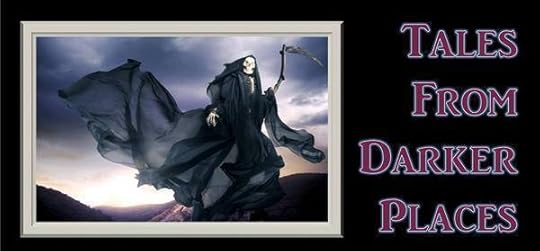
Darker Places – a chilling anthology of horror, dark fantasy, and dark fiction from the Indie Collaboration.
A selection of chilling stories from some of the best Indie authors on the market. We dare you to venture into these pages of spine chilling tales and stories of dark shadows & darker tidings, shifters, ancient warriors, zombies, & demons… See the world through the Ripper’s eyes, and so much more. So many dark, foul things wait for you between these pages. Freely donated by the authors themselves, these dark passages are a great example of their various, unique styles and imaginations.
Show your support at the following link:
https://www.thunderclap.it/…/17846-dare-you-enter-darker-pl…


Thunderclap – One User’s Experience
After my recent post about Thunderclap, the crowd-speaking platform, I decided to interview author David Toft about his experiences.
Hi David, and thanks for joining us. How did you first discover Thunderclap?
The more I think about this question, the less sure I am about the answer. I think a writer friend contacted me asking for support for their campaign, but I honestly can’t remember.
Can you tell us about your promotions?
I’ve run three promotions. The first to generate interest in my current trilogy and linked to Amazon’s listing of book one.
I decided to visit my back catalogue for the second and chose Ishtal, a fantasy published by Wings ePress a couple of years ago. Again I linked to the book’s Amazon listing.
Back to the Kyklos Trilogy for campaign number three, and again linking to Amazon’s listing of book one, The Cycles Turn. It’s reached 140% support and is due to go ‘live’ in a couple of days. If it’s not too late you can add your support at http://thndr.it/1nzIjXj
What is involved? How much leg work did you have to do?
Thunderclap campaigns are amazingly easy to set up. If I can do it, anyone can. Getting those one hundred supporters is where the work comes in. It doesn’t sound a lot, but believe me it isn’t easy. I was on my own for all but the last few days of my first campaign and spent an awful lot of time that should have been writing time begging for support from facebook groups, on twitter and on Google+. If you’re thinking of setting up a campaign, join a mutual support group such as Thunderclap Campaigns, or Stormbuilders, on Facebook
Tell us about your successes? How have you benefited?
I think there’s a danger that running a successful campaign becomes an end in itself. All my campaigns have been successful in that they’ve all achieved the required support and gone live. My aim when I started was to boost book sales, and the first two campaigns failed to do that to any noticeable extent. Here’s hoping that number three is different.It’s all about exposure, people tell me, and yes Thunderclap campaigns have increased my exposure, particularly on Twitter, increasing my follower numbers and generating retweets and favourites.
Did you discover any pitfalls?
None, really, but remember that if you’re in a mutual support group, every Thunderclap campaign that you support will appear on your Facebook timeline. If you don’t want that timeline plastered with erotica, be selective.
Would you recommend Thunderclap?
I would, as a means of increasing your exposure, and it’s free which appeals to me as a Yorkshireman.
What promotional advice do you have for others looking to use such crowd-sharing features?
Join a mutual support group, but be a little selective, if you want to keep your Facebook timeline free of certain posts, support via Twitter only, you’ll get your support returned and keep your timeline clean.
If you choose Thunderclap, when you support another campaign click on the ‘tweet’ option. Doing this doubled my number of Twitter followers and gained me more retweets and favourited tweets than I’ve ever seen before.
Enjoy! It can be fun and you’ll make more friends.


October 19, 2014
Hunters Book Tour – Spotlight Aoife Marie Sheridan
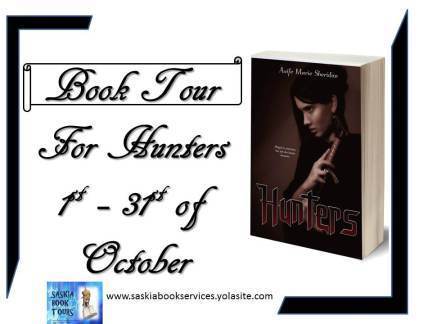
Hunters
The Demon Series #1
By Aoife Marie Sheridan
Abigail is nineteen. Her job, she hunts demons.
Her life so far has been tough. Having witnessed her family’s death and her mother’s suicide, she’s been taken in by a priest, who believes her when she says that she sees ghosts. Father Peter trains her as a demon hunter with three other members, one being Daniel, who isn’t what he seems.
But when a possession goes wrong, and ghosts start to attack Abigail, the tight rope she has on her emotions soon starts to loosen. Abigail draws the unwanted attention of the Reote, and she finds out a lot more than she was willing to learn.
Knowledge is power, but for Abigail, it’s her undoing, and the only thing keeping her together is Daniel.
All Amazon Purchase Links: http://authl.it/22e
About the Author:
Aoife Marie Sheridan has loved reading from a very young age, starting off with mills and boon’s books, given to by her grandmother her love for romances grew, by the age of 14 she had read hundreds of them.
Aoife had a passion for writing poetry or in her eyes her journal entries. It was something she did throughout her teens and into her twenties. Aoife won first place for two of her poems and had them published at a young age of just nineteen. Realising she needed to get a real job (What writing isn’t) she studied accountancy and qualified working in that field for many years, until her passion for reading returned and she found Maria V Snyder. Poison study one of her favourite books has been read and re-read countless times.
Aoife’s first book Eden Forest (Part one of the Saskia Trilogy) came to be after a dream of a man and woman on a black horse jumping through a wall of fire and the idea of Saskia was born. Now with her first novel published and taking first place for Eden Forest with Writers Got Talent 2013, Aoife continues to write tales of fantasy and is currently working on her third book for the Saskia Trilogy amongst other new works.
To contact Aoife you can email her at aoifesheridan101@gmail.com
Website: www.aoifemariesheridan.com
Facebook: www.facebook.com/Aoifemariesheri
Blog: aoifesheri.wordpress.com
Goodreads: https://www.goodreads.com/author/show/6551996.Aoife_Marie_Sheridan
Twitter: https://twitter.com/aoifesheri
Google Plus: https://plus.google.com/+AoifeMarieSheridan
Linkedin: http://ie.linkedin.com/pub/aoife-marie-sheridan/66/760/942
Pinterest: http://www.pinterest.com/aoifesheri/


Please show your support for The Cycles Turn – book one of The Kyklos Trilogy” by David Toft on Thunderclap
A fantasy Thunderclap Campaign
 Originally posted on theowlladyblog:
Originally posted on theowlladyblog:
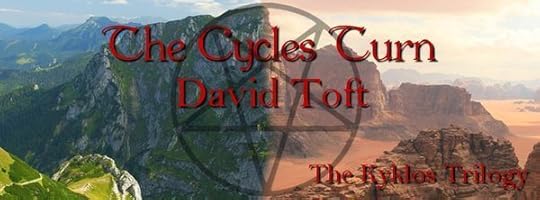
The Cycles Turn – book one of The Kyklos Trilogy” by David Toft
A must read for anyone who loves a good story.
Please click on the link below to show your support. Thank you in advance:


Thunderclap Campaigns – the basics
Thunderclap seems to be one of the new mass social media sensations. So what DOES it do?
From the Thunderclap Page. https://www.thunderclap.it/
‘What is Thunderclap?
Thunderclap is the first crowd-speaking platform that helps people be heard by saying something together.’
‘How does it work?
If you reach your supporter goal, Thunderclap will blast out a timed Twitter, Facebook, or Tumblr post from all your supporters, creating a wave of attention.’
So basically you set up your Thunderclap, be it for your book promotion, charity event or something else and for the ‘spark’ package it is free. This need 100 supporters within the designated time – after which it shares the promotion on the Twitter, Facebook and/or Tumblr sites of supporters.
It is, of course, up to the Thunderclapper him or herself to gain the support, and one thing I found with my first attempt – people are quite willing to share on twitter but don’t actually manage to click the Thunderclap link and follow the instructions. Although sharing the link IS useful it isn’t as useful as actually supporting! I’d say too pick a reasonable time period in which to promote. Not all campaigns are successful, and not all will get the desired result. However it does appear to be a good way to reach new followers, especially via Twitter.
Supporters need to click on the RED ‘Support with’ buttons – Facebook, Twitter, Tumblr and these will go grey when supported. In the left hand image below the Facebook and Twitter buttons are grey, as I have supported using these but the Tumblr button remains unused. There are also ‘Spread the Word’ icons – which can be clicked multiple times.
You’ll get an update via email every day and people can choose or not to receive emails on forthcoming campaigns.
The wider reach and fancier promotions cost money but as a basic starting package free cannot be knocked;)
Here is the link to my current Thunderclap Campaign. https://www.thunderclap.it/projects/1...



